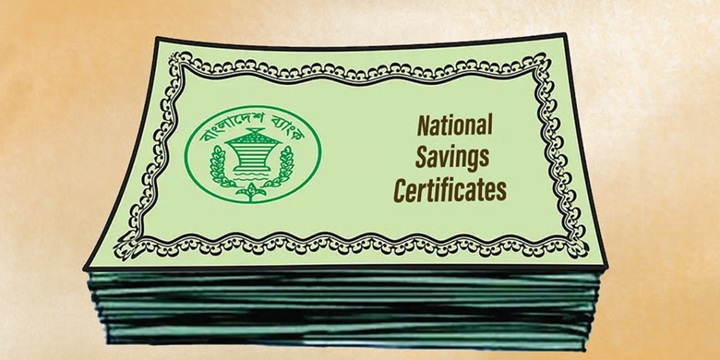Net sales of national savings certificates nosedived by 86.3 per cent year-on-year in August 2025 as rising living costs and tighter liquidity conditions eroded small investors’ appetite for the once-popular savings tools.
Bangladesh Bank data show that net sales of savings certificates fell to Tk 2.79 billion in August from Tk 20.36 billion in the same month last year. The decline follows a similar trend in July, when sales dropped to Tk 12.93 billion from Tk 21.87 billion a year earlier — a 41 per cent fall.
During July–August of the current fiscal year (FY26), net sales stood at Tk 15.72 billion, down by 62.8 per cent from Tk 42.24 billion in the same period of FY25.
The total outstanding balance of savings tools also shrank to Tk 3.40 trillion in August, compared to Tk 3.50 trillion a year earlier — a 2.9 per cent drop.
Despite the recent slump, the previous fiscal year (FY25) ended with some improvement, as net sales closed with a negative balance of Tk 60.63 billion, compared to a deficit of Tk 211.24 billion in FY24.
Economists say the sharp decline reflects both the government’s cautious borrowing stance through savings tools and the strain on household incomes from persistently high inflation. Many small investors are reportedly cashing in matured certificates to cover daily expenses rather than reinvesting.
“The 86 per cent fall in August shows how inflation and reduced yields are reshaping household savings behaviour,” said economist Dr M Masrur Reaz. “More people are encashing than reinvesting, weakening a traditional source of government financing.”
He noted that while aligning savings schemes with a tighter monetary policy helps control inflation, it risks diverting household savings into informal or riskier channels. Reaz also pointed out that digitalisation, though improving transparency, may have discouraged less tech-savvy small savers.
The government’s “National Saving Certificates Online Management System,” introduced in 2019, requires investors to use e-TIN and national ID cards — a step seen as strengthening oversight but adding to procedural complexity for many rural savers.
Analysts say revitalising household savings will require a broader strategy — one that links savers to diversified investment options and a deeper, more accessible capital market.






